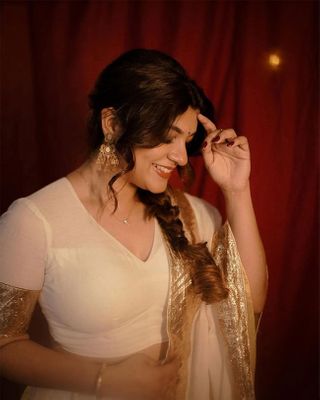Changeling Movie Review
In our wackily misconstrued week of "Chandni Chowk To China" look at what they brought for us! Hollywood's finest talents seem to be swooping down in recent months to give us experiences that go far beyond entertainment.
"Changeling", which features Angelina Jolie as a traumatised but hopeful-to-the-end mother battling incompetence, despair and a thoroughly corrupt police department in the 1920s, is the kind of cinema that you want to clutch close to your heart.
It lodges itself deep down in your subconscious as a treatise on self-assertion in a society that doesn't take kindly to discomforting middleclass protests.
The mother's efforts - sometimes desperate, but always riveting - to prove that the boy that the cops bring back to her, is not her son makes for traumatic viewing.
"Changeling" is not an easy film to watch. So who said life's easy?
Eastwood - a late bloomer in the arena of actors-turned-directors, but what a blossoming of brilliance it has been for him - spares us none of the harrowing drama that unfolds underneath the veneer of what we recognise and acknowledge as civil society.
The disturbances bubble to the surface in the narrative with a calmed-down persuasiveness, just like the bodies of those 20 innocent children butchered by the psycho, played with a chilling mix of hysteria and cynicism by Jason Butler Harner.
Eastwood's narrative neither intimidates nor shocks you. It creates a sense of growing anxiety and apprehension that culminate in the hope that standing up to injustice and crime is eventually a rewarding experience.
Nothing in the film suggests any glimmer of redemptive light that. Eastwood tells the nightmarish story with a refreshing candour and directness.
The actors don't preen in postures of periodicity. They could belong to any era, for all they care. They are there for a purpose and they serve that purpose with unflinching absence of dramatics.
My quibble with the film, if any, has to do with Jolie's performance. I am told she was chosen because she 'looked' the part. A peculiar logistic for a work that penetrates far deeper than the skin in pursuit of what can be called the opposite of happiness.
As in "A Mighty Heart", here too Jolie doesn't allow her character the liberating luxury of showing pain.
Or maybe the mother is so numbed by the enormity of the tragedy, she is unable to show it.
The mystery, as we all know, is not how we live our lives. It's how we manage to dodge the sharp glass shards that destiny hurls in our path while we are not looking.
Look closely at this film. It's a rude reminder of how far Bollywood needs to go before it can look its upmarket cousin deep in the eye.







